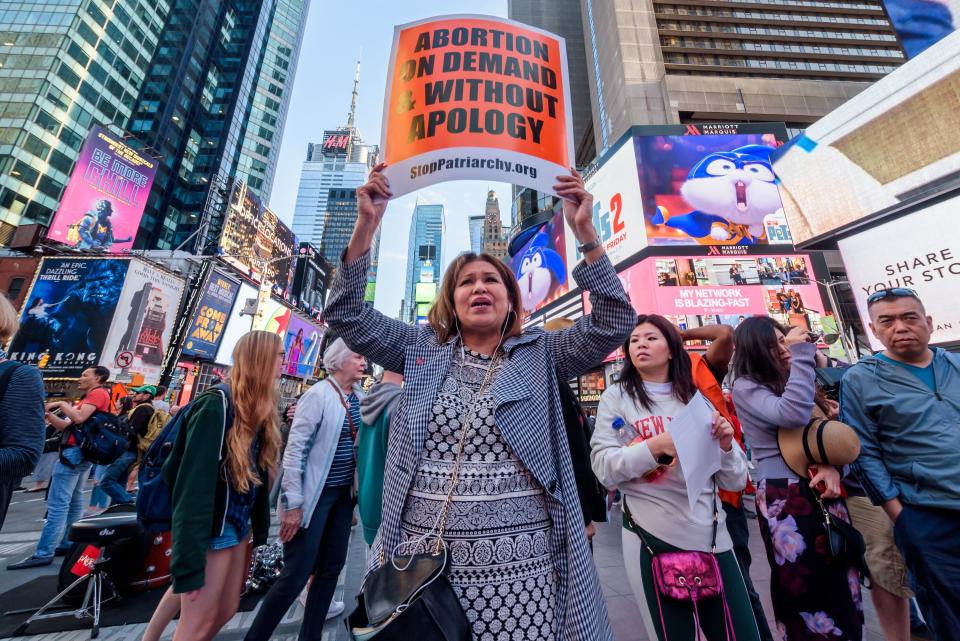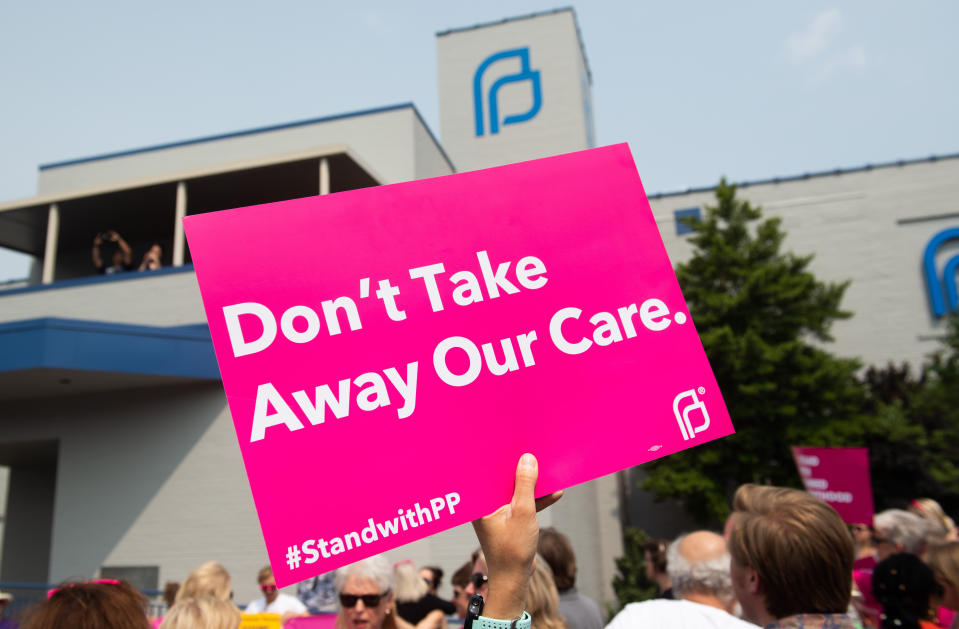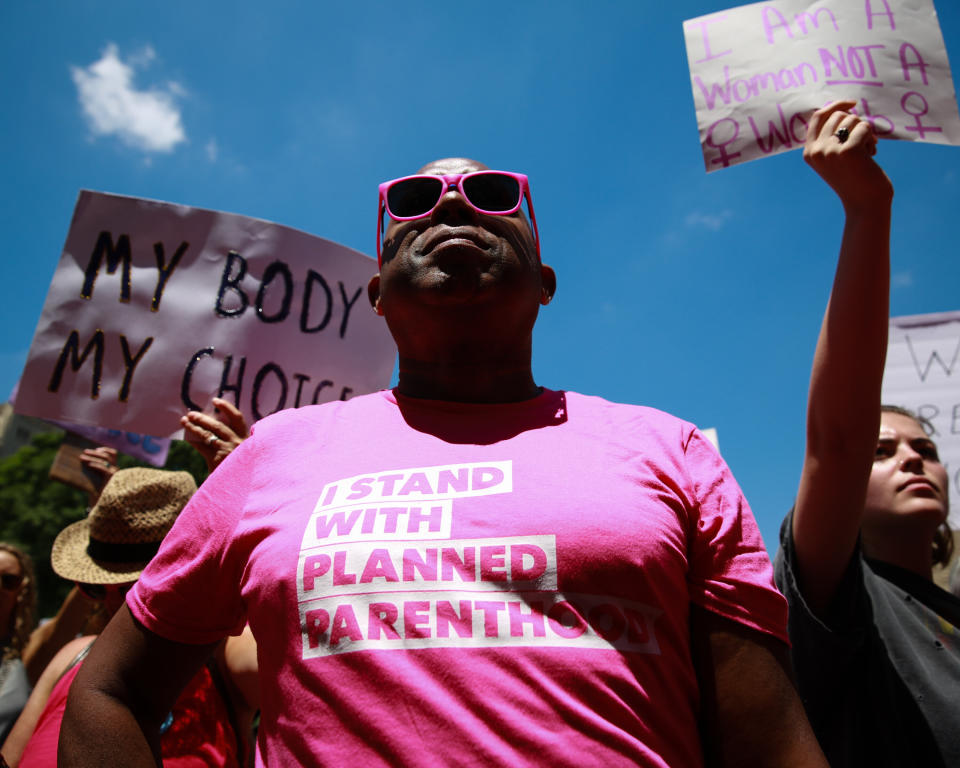Abortion bans could cost American taxpayers billions of dollars each year

A recent spate of anti-abortion bills passed in the legislatures of Louisiana, Alabama, Missouri, Georgia, Mississippi, Arkansas, Kentucky, Utah, and Ohio this year, setting the stage for legal challenges that will bring the 1973 Roe v. Wade decision in front of Supreme Court.
The wave of abortion bans has inspired protests across the country, and some officials have called for divestment, boycotts, and economic retaliation against the states that have passed these bills.
But politics and ethics aside, there is a high cost to abortion bans in the United States. Each year, anti-abortion legislation costs American taxpayers billions of dollars due to costs associated with unplanned and unwanted pregnancies, complications from unsafe abortions, and legal challenges that taxpayers must cover. The recent wave of abortion bans might also cost states in business investment.
According to the Guttmacher Institute, a research institution on sexual and reproductive health, unintended pregnancies cost the U.S. over $20 billion a year in 2010 (according to the study, an unintended pregnancy is one that is either unwanted or wanted, but at a later date). Those costs include births, abortions, and miscarriages. “That amounts to 51% of the $40.8 billion spent for all publicly funded pregnancies that year,” the study said.
Much of the financial burden for these unintended pregnancies is borne by the public, as women living in or close to poverty are far more likely to have unintended pregnancies. Most of these mothers are therefore eligible for social programs like Medicaid and the Children’s Health Insurance Program (CHIP). To put this cost into perspective, research shows that in 2010 the public paid just under $13,000 on “prenatal care, labor and delivery, postpartum care and 12 months of infant care.” per birth. The study says that if care is extended to five years, the cost jumps to $20,716. In other words, on average, approximately $335 is spent on every woman aged 15 to 44 years old in the entire country.
Note these figures are from 2010. Over the past decade, the cost of raising a child to adulthood has jumped, hitting roughly $234,000 in 2015. And that doesn’t factor in the cost of higher education.
Complications increase cost
If $20 billion sounds like a lot, research shows it could be much higher. Without publicly funded family planning initiatives, the cost would have been 75% more, according to Guttmacher. And if all unintended pregnancies were averted, the study shows the U.S. could have saved $15.7 billion. By banning abortion or by making it difficult for a woman to receive abortion care, the costs will only rise.
Studies have found that increasing access to abortions does not increase the number of abortions in the country. But banning them does increase the number of women who have unsafe abortion procedures – usually low-income women who can’t afford to travel to receive abortion care. After banning abortions in Romania, maternal mortality doubled between 1965 and 1989. And treating the complications stemming from unsafe abortions is costly.
Globally, an estimated 25 million unsafe abortions occur each year — almost half of all abortions. In the developing world, $341 million is spent on treating the complications from unsafe abortions. With low-income women unable to find other avenues for an abortion if they are denied access in their own state, it is feared American women will turn to risky and desperate measures to terminate a pregnancy. Such measures would drag on health programs such as Medicaid, where the current administration has already proposed budget cuts to the tune of $1.5 trillion.

The economic toll facing women
But there are also potential knock-on effects that will have broader implications to the U.S. economy. Banning abortions also negatively impact the women that are seeking them. Women who are denied abortions are three times more likely to be unemployed than women who were able to receive one, according to a 2018 study from Advancing New Standards in Reproductive Health (ANSIRH), a research group at the University of California, San Francisco.
That wasn’t all. Women who were not allowed to access abortion services had nearly a four times greater chance of living below the federal poverty line. Six months after being denied an abortion, the results found, women were more likely to receive public assistance and less likely to be employed full time than women who obtained abortions. The research states that these differences remained “significant” for four years.
The ANSIRH study notes that “women denied an abortion were more likely than were women who received an abortion to experience economic hardship and insecurity lasting years. Laws that restrict access to abortion may result in worsened economic outcomes for women.”
Once a woman had a child after being denied an abortion, the research showed an “increased likelihood” that they wouldn’t have enough money to pay for basic family necessities, like “food, housing, and transportation.”
Additionally, women who weren’t able to get abortion care were more likely to stay in contact with violent partners.
Businesses take a stand
Individual states also stand to be penalized for passing anti-abortion legislation.
Georgia is particularly vulnerable. In 2018, 455 television and film productions qualified for tax credits from Georgia’s generous tax policy for media productions. Aside from the United Kingdom, the state of Georgia gives out more film tax credits than anywhere else in the world.
And the film industry has produced $9.5 billion in total economic impact for the state, with $2.7 billion coming from direct spending for Georgia’s FY 2018. But with the passage of Georgia’s abortion bill — which bans abortions after the detection of a fetal heartbeat (which can be heard as early as 6 weeks, before many women even know they are pregnant), that business is in jeopardy.
Hollywood giants like Netflix, Disney, WarnerMedia, NBCUniversal, AMC and others have threatened to leave the state of Georgia or reevaluate filming there if the ban is upheld. Smaller studios have made similar statements, some even going as far as calling for boycotts in the state.

Elsewhere, politicians have called for divestment from states that have passed legislation banning abortion.
Maryland’s Democratic Comptroller Peter Franchot wants to divest the state’s $52 billion pension fund from Alabama businesses over its abortion legislation. He’s also ordering his staff not to travel to the state and plans to leverage his position on the Board of Public Works to limit contracts with Alabama-based businesses.
Colorado’s Democratic Secretary of State Jena Griswold echoed Franchot’s sentiments, and threatened not to use state money on travel to Alabama.
The cost of fighting legal battles
Taxpayers won’t just be hit by the cost of abortion bans through increases in public spending and drags on social welfare resources. Taxpayers in states that passed anti-abortion legislation will see tax dollars siphoned off to pay for forthcoming uphill legal battles.
The Supreme Court ruled in Roe v. Wade that the Fourteenth Amendment of the U.S. Constitution gives pregnant women a “right to privacy,” thereby allowing her to choose if she wants an abortion or not. Organizations like the American Civil Liberties Union (ACLU) and Planned Parenthood have already pledged to fight these bans in court. And while Alabama welcomes the lawsuits in the hopes that Roe will be overturned in the Supreme Court, it won’t come without a price.
According to Planned Parenthood, Arizona, Idaho, Kansas, Texas, and both Dakotas have spent $3.5 million of taxpayer dollars defending anti-abortion laws. In Mississippi, the cost of defending the state against legal challenges since 2012 was more than $225,000 and could exceed $1 million. Alabama has also spent a lot of taxpayer money in the courtroom: according to a blog post from the ACLU, the state was forced to pay $1.7 million to the organization in 2016 after a federal court struck down an Alabama law that would have forced most abortion clinics in the state to close.
The costs for American taxpayers as states try to protect anti-abortion legislation will only continue to increase. Currently, there are at least 20 cases snaking their way through to the legal system on the way to the Supreme Court. Most involve challenges to state laws that aim at restricting abortion access.
Looking to 2020
A June 2018 poll from the Kaiser Family Foundation shows that 67% of the country do not want the Supreme Court to overturn Roe v. Wade. Recent polls show that the number of Americans in support of legal abortion has increased to 77% in the face of laws rolling back access.
As American taxpayers have largely announced their support of the Constitutional right to abortion, presidential candidate Joe Biden announced a reversal of his support for the Hyde Amendment, which bans federal funding for abortions.
The move came after days of criticism from voters and fellow presidential candidates who lampooned the former vice president and senator for his support of the law. In a speech, Biden cited the recent passage of abortion bans across the country for his withdrawal of support, calling the bans “extreme laws.”
“If I believe healthcare is a right, as I do, I can no longer support an amendment that makes that right dependent on someone’s ZIP code,” he said.
Kristin Myers is a reporter at Yahoo Finance. Follow her on Twitter.
Read more:
Over half of parents willing to go into debt to pay children’s college tuition
Corporations paid $91 billion less in taxes in 2018 under Trump's tax law
Follow Yahoo Finance on Twitter, Facebook, Instagram, Flipboard, LinkedIn, YouTube, and reddit.
Read the latest financial and business news from Yahoo Finance

 Yahoo Finance
Yahoo Finance 
